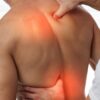
Experiencing neck soreness after car accident is a common and often unsettling occurrence, underscoring the potential impact of vehicular collisions on our well-being. Neck soreness after a car accident encapsulates the physical discomfort and challenges individuals may face following such incidents.
The abrupt and forceful movements during a collision can lead to strain on the muscles, ligaments, and soft tissues in the neck, giving rise to persistent pain and stiffness. In this introduction, we delve into the multifaceted aspects of neck soreness after car accident, exploring its causes, symptoms, and the crucial need for prompt medical attention and comprehensive care.
As we unravel the complexities of this prevalent issue, we also emphasize the importance of understanding its long-term implications and adopting proactive measures for recovery and future well-being.
Causes of Neck Soreness After Car Accident:
The causes of neck soreness after a car accident are primarily attributed to the sudden and forceful movements the neck experiences during the collision. The most common cause is whiplash, a type of injury that occurs when the head is rapidly jerked forward and backward. This rapid motion puts immense strain on the neck muscles, ligaments, and soft tissues, leading to soreness and discomfort. Several factors contribute to the development of neck soreness in the aftermath of a car accident:
-
Whiplash Mechanism:
- The whiplash mechanism is often associated with rear-end collisions. When a vehicle is struck from behind, the force propels the occupant’s head forward, stretching the neck’s soft tissues. The subsequent rebound effect causes the head to snap backward, further straining the neck.
-
Tensing Muscles:
- In anticipation of an impending collision, individuals often tense their muscles involuntarily. This tensing action, intended as a protective response, increases the risk of muscle strain and damage during the impact.
-
Impact Force:
- The impact force generated during a car accident, even at moderate speeds, can lead to significant stress on the neck. This force is transmitted through the cervical spine, affecting the delicate balance of muscles, ligaments, and discs.
-
Debris and Secondary Impact:
- Flying debris from the collision, whether from inside or outside the vehicle, can contribute to neck injuries. Additionally, secondary impacts within the vehicle, such as hitting the steering wheel or dashboard, can exacerbate neck soreness.
-
Pre-existing Conditions:
- Individuals with pre-existing neck conditions or prior injuries may be more susceptible to experiencing severe neck soreness after a car accident. The trauma from the collision can aggravate existing issues, leading to heightened discomfort.
-
Tissue Compression and Pinched Nerves:
- The abrupt movements of the head and neck can lead to compression of cervical discs and pinching of nerves. This can result in radiating pain, tingling sensations, and numbness, intensifying the overall neck soreness.
Symptoms of Neck Soreness After Car Accident:
The symptoms of neck soreness after car accident encompass a range of physical and emotional manifestations, often indicative of underlying injuries sustained during the collision. Recognizing these symptoms is crucial for timely medical intervention and effective management. Common symptoms include:
-
Persistent Neck Pain:
- The hallmark symptom is the persistence of neck pain, ranging from mild discomfort to severe, throbbing pain. The pain may be localized or radiate to the shoulders and upper back.
-
Stiffness and Reduced Range of Motion:
- Individuals often experience stiffness in the neck, making it challenging to move the head freely. Reduced range of motion is a common consequence of strained muscles and ligaments.
-
Headaches:
- Frequent headaches, often starting from the base of the skull, are a common symptom. These headaches may be tension-type or originate from the neck muscles.
-
Dizziness and Nausea:
- The sudden and forceful movements during a car accident can lead to dizziness and nausea. These symptoms may be associated with the disruption of the vestibular system.
-
Visual Disturbances:
- Blurred vision or difficulty focusing may occur due to the impact on the neck’s structures, affecting the coordination between the eyes and head movements.
-
Tingling and Numbness:
- Pinched nerves or compression of cervical discs can result in tingling sensations and numbness, typically radiating down the arms. This may indicate neurological involvement.
-
Sleep Disturbances:
- Neck soreness often interferes with sleep, causing discomfort when trying to find a comfortable sleeping position. Sleep disturbances can contribute to overall fatigue and hinder the healing process.
-
Cognitive and Emotional Effects:
- Difficulty concentrating, memory issues, anxiety, and irritability are common cognitive and emotional symptoms. The physical trauma may have psychological implications, requiring comprehensive care.
-
Fatigue:
- The body’s response to pain and injury can lead to increased fatigue. Individuals may feel overly tired, contributing to a sense of overall malaise.
-
Muscle Spasms:
- In an attempt to protect injured tissues, the body may respond with muscle spasms. These spasms can further contribute to pain and stiffness in the neck.
�Understanding the Long-Term Impact:
Understanding the long-term impact of neck soreness after a car accident is crucial for comprehensive care and informed decision-making. Several factors contribute to the extended consequences of such injuries:
-
Chronic Pain and Disability:
- Some individuals may experience chronic neck pain, stiffness, and disability, especially if the initial injury is not adequately addressed. Untreated or poorly managed neck soreness can evolve into a persistent condition, affecting daily activities and quality of life.
-
Post-Traumatic Stress Disorder (PTSD):
- The emotional trauma of a car accident can lead to the development of post-traumatic stress disorder (PTSD). Individuals may experience anxiety, nightmares, flashbacks, and avoidance behaviors, further complicating the recovery process.
-
Degenerative Changes:
- Neck injuries from a car accident can accelerate degenerative changes in the cervical spine. This may lead to conditions such as cervical spondylosis, where wear and tear on the discs and joints result in chronic pain and reduced mobility.
-
Neurological Complications:
- Severe neck injuries can have lasting neurological implications, including persistent tingling, numbness, or weakness in the arms and hands. Pinched nerves or compressed spinal cord segments may require ongoing management.
-
Impact on Daily Functioning:
- Long-term neck soreness may impact an individual’s ability to perform routine activities, including work-related tasks, driving, and household chores. Functional limitations may necessitate lifestyle adjustments and accommodations.
-
Financial Strain:
- Managing the long-term impact of neck soreness often involves ongoing medical treatments, rehabilitation, and potential lifestyle modifications. These factors can contribute to financial strain, with increased healthcare costs and potential loss of income.
Preventive Measures for Future Well-being:
In addition to immediate and ongoing management, adopting certain preventive measures can contribute to the overall well-being of individuals who have experienced neck soreness after car accident:
- Maintain Good Posture: Pay attention to your posture, especially when sitting for extended periods. Use ergonomic supports for your neck and back to reduce strain.
- Regular Exercise: Incorporate gentle exercises and stretches into your routine to promote overall flexibility and strength. Consult with healthcare professionals or a physical therapist for a tailored exercise plan.
- Ergonomic Workspace: If your daily activities involve prolonged sitting at a desk, ensure that your workspace is ergonomically designed to minimize strain on your neck and back.
- Stay Hydrated: Proper hydration supports the overall health of your muscles, including those in the neck. Adequate water intake helps maintain tissue elasticity.
- Balanced Nutrition: A balanced diet rich in nutrients supports the healing and recovery of tissues. Ensure you are getting essential vitamins and minerals for overall well-being.
- Stress Management: Practice stress-reducing techniques such as deep breathing, meditation, or yoga. Chronic stress can exacerbate muscle tension and contribute to ongoing discomfort.
Legal Considerations:
If your neck soreness is a result of a car accident caused by someone else’s negligence, it’s essential to be aware of your legal rights. Consult with a personal injury attorney who can guide you through the legal process, assess the viability of a personal injury claim, and help you seek compensation for medical expenses, pain and suffering, and other related damages.
Recovery and Rebuilding – Embracing a Healthier Future :
As you navigate through the recovery process following neck soreness after car accident, it’s essential to recognize that healing is a gradual journey. Here are additional considerations and steps to help you rebuild and embrace a healthier future:
-
Follow Medical Recommendations:
- Adhere to the advice and recommendations provided by your healthcare professionals. Attend follow-up appointments and communicate any changes or concerns regarding your symptoms.
-
Gradual Return to Activities:
- Ease back into daily activities and work responsibilities gradually. Avoid overexertion and listen to your body’s signals. If certain activities exacerbate your neck soreness, modify or limit them until you gain more strength and flexibility.
-
Mind-Body Connection:
- Incorporate stress-management techniques that foster a positive mind-body connection. Practices such as mindfulness meditation, deep breathing exercises, or yoga can contribute to both physical and mental well-being.
-
Support System:
- Lean on your support system, whether it be family, friends, or a support group. Emotional well-being is integral to the recovery process, and having a network to share your concerns and victories can make a significant difference.
-
Reevaluate Lifestyle Choices:
- Assess lifestyle factors that may contribute to neck discomfort, such as sleeping habits, screen time, or physical activity. Make adjustments as needed to create an environment that supports your recovery.
-
Holistic Approaches:
- Explore holistic approaches to wellness, including complementary therapies like acupuncture, chiropractic care, or herbal remedies. Consult with your healthcare team before incorporating new treatments into your regimen.
-
Celebrate Progress:
- Acknowledge and celebrate the progress you make, no matter how small. Recognizing improvements in mobility, pain reduction, or overall well-being can positively impact your mindset and motivation.
-
Educate Yourself:
- Take the time to educate yourself about neck anatomy, common injuries, and self-care strategies. Knowledge empowers you to actively participate in your recovery and make informed decisions about your health.
-
Stay Patient and Persistent:
- Understand that recovery is a unique process for each individual. Be patient with yourself, and stay persistent in your commitment to healing. Celebrate the milestones, no matter how minor, as they collectively contribute to your overall progress.
Neck soreness after car accident is a significant concern that requires proactive and comprehensive management. By seeking timely medical attention, adopting appropriate home remedies, and incorporating preventive measures into your lifestyle, you can contribute to a smoother recovery process.
Patience and persistence play pivotal roles in navigating the nuances of healing, as individuals strive not only to alleviate symptoms but also to cultivate a resilient mindset. This phrase encapsulates a narrative of endurance, highlighting the indomitable spirit required to overcome the aftermath of neck soreness following a car accident and forge a path toward restored well-being.




